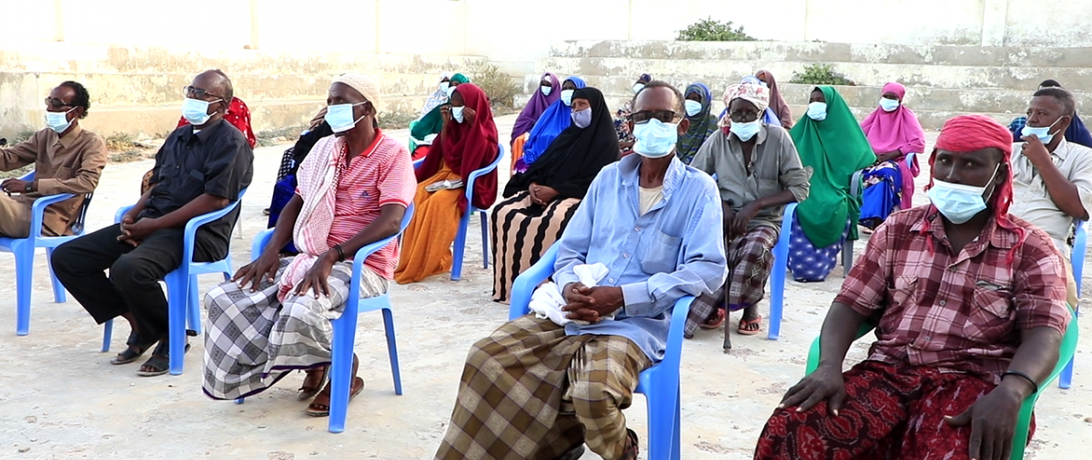
Secure Fisheries is taking a look back at the challenges, adaptations, and accomplishments during the COVID-19 pandemic.
It has been a year since we retreated from our offices and normal activities in response to the COVID-19 pandemic. While the world changed, Secure Fisheries adapted. Though it looked a little different, our research and work engaging with coastal communities and strengthening partnerships in the Somali region continued. The future is still uncertain, but we are looking back at what we have learned during a challenging year.
Modifying Our Plans
Changing Formats
- Meetings and data collection also looked a bit different in 2020. Secure Fisheries facilitated meetings with smaller groups of individuals while still ensuring that groups were diverse and representative of different community groups. Community meetings were held outside throughout the year and staff and participants followed World Health Organization guidelines.
- Data collection at many crowded landing sites was paused to protect the data collection team, however they were still able to gather relevant catch information via telephone instead of in person. To supplement the more basic catch data, Secure Fisheries trained data collectors on shoreline mapping and gathering fishing location information. The spatial data was beneficial to the project, making the dataset more robust and useful for future fisheries management planning.
Virtual Meetings
- While COVID-19 presented a unique set of challenges, it also gave us new opportunities to present our research. The online conference platform allowed two Secure Fisheries team members to present at the Geographic Society of America's Geography 2050 conference, bringing our work to the attention of a wider audience than any in-person meeting could.
Sharing COVID-19 Information
- Misinformation, particularly in the early stages of the COVID-19 outbreak, has been problematic in curbing the pandemic’s spread. Secure Fisheries distributed available educational materials in Somali to familiarize community members with safety measures they could take to protect themselves.
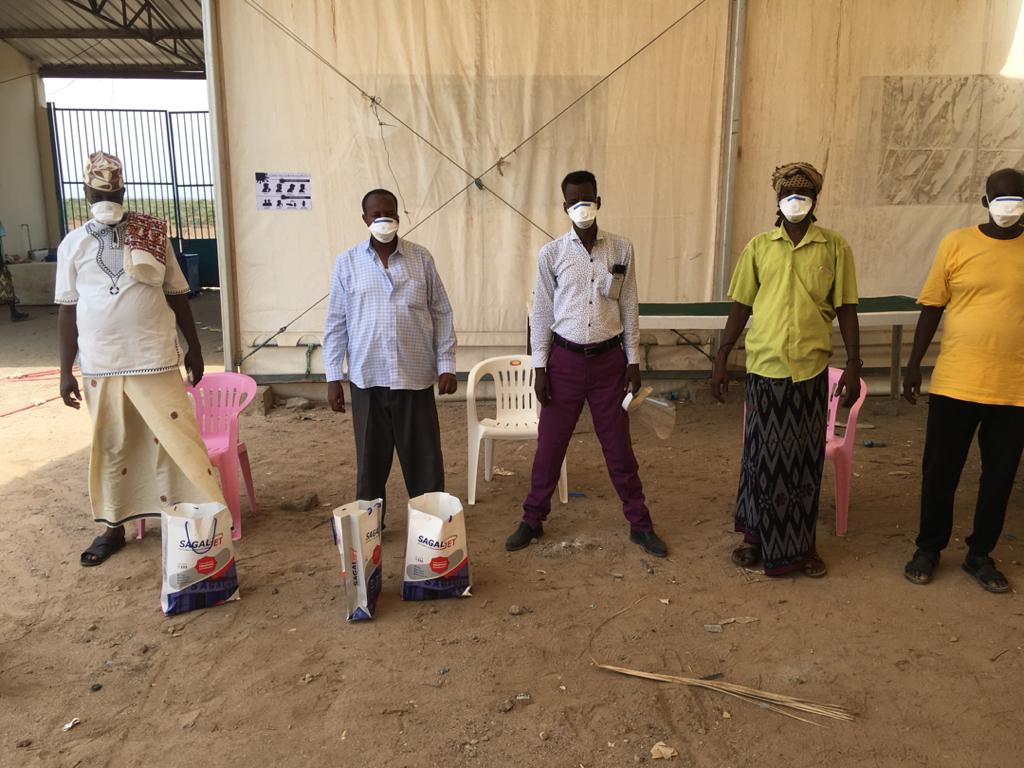
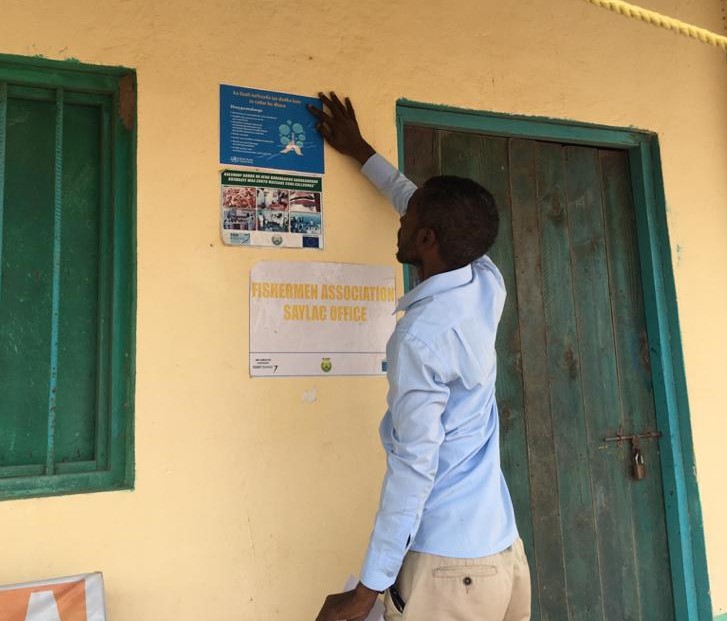
Community members in Zeila, Somaliland display the proper use of masks for protection. Further information is posted in public areas throughout the town.
Accomplishments
Co-management capacity
- Before COVID-19 regulations took effect, Secure Fisheries started 2020 by hosting a fisheries co-management workshop in Nairobi with representatives from the fisheries ministries of the Federal Government, Puntland, Jubaland, Hirshabelle, and South West State.
- We ended 2020 with the signing of power-sharing agreements in Bander Beyla, Puntland, and Zeila, Somaliland, formalizing the objectives of the co-management associations, the parties involved, and the local partnerships with regional governments.
- Secure Fisheries followed up with two participants from a local net-making training in Bander Beyla and learned that their new skills improved their families’ livelihoods, and that they shared the benefits by teaching those skills to others in the community.
- Business administration skills are key to successfully operating a self-sustaining co-management association. Secure Fisheries facilitated an interactive business administration training in Bander Beyla.
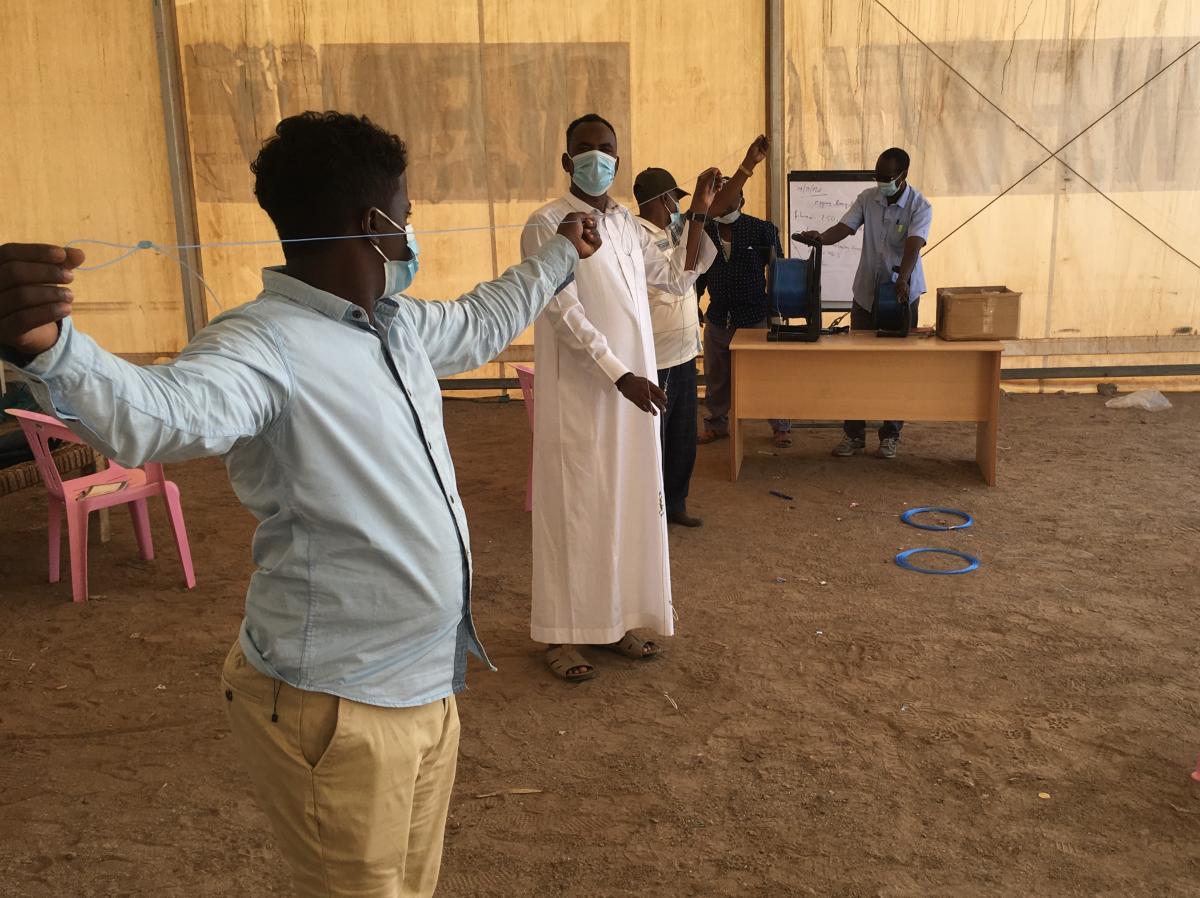
Co-management community capacity building and training continued with social distancing and masks.
Fisheries Data Collection
- With the success of Project Kalluun in Mogadishu, the project expanded in 2020 to Berbera, Kismayo, and Bosaso, where Secure Fisheries is partnering with local universities to train students in collecting fish catch data. Data collection was paused during the height of the pandemic, but moved forward again at the start of this academic year. The project has now trained 30 students and collected data from nearly 200 boats.
- With funding from the Western Indian Ocean Marine Science Association, prominent billfish scientists trained the Project Kalluun students to identify billfishes and conduct specialized research projects, helping to fill the gap in knowledge on these species in Somali waters.
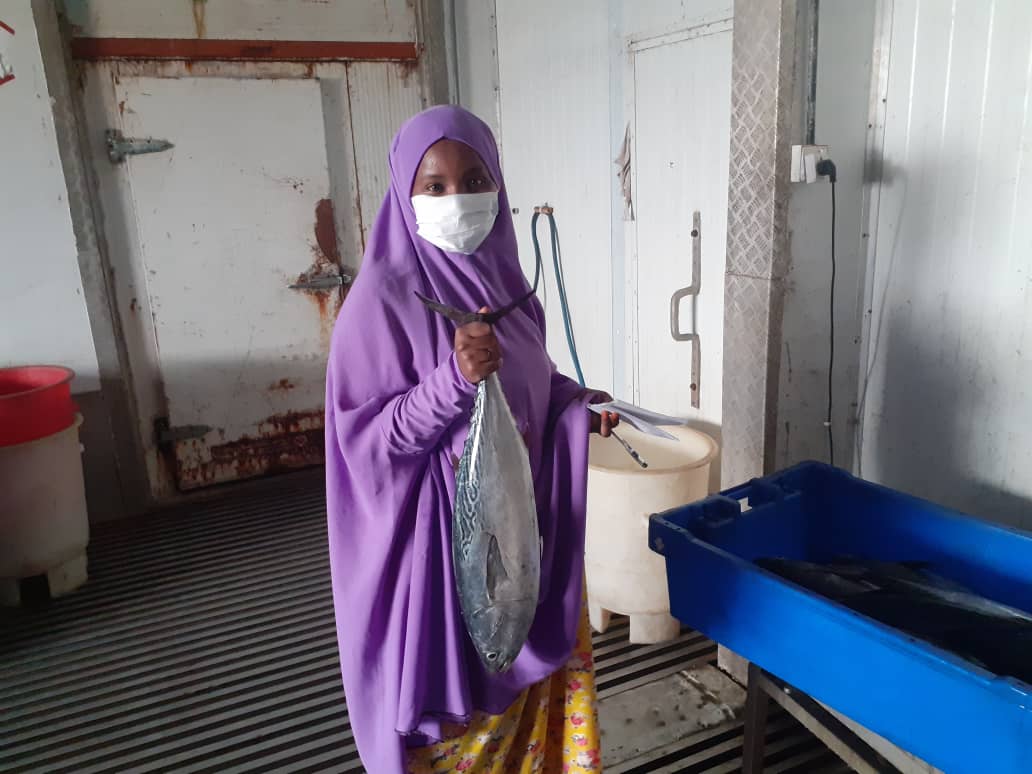

Some Project Kalluun students measure and weigh fish while protecting themselves from COVID-19 with masks, gloves, and social distancing while inside.
Research
- As competition for finite fisheries resources increases, the risks of violent conflict over fisheries also rise. The Rough Seas report shares findings on the causes and consequences of fisheries conflict in the Somali Region from 1990–2017.
- Secure Fisheries contributed to an investigation into how the cooperative (or co-) management of natural resources can foster durable peace agreements after civil conflict. The report found that co-management reduces the risk of future fighting when rebel groups have a vested interest in the management of natural resources.
Partnerships
- The COVID-19 pandemic halted fish exports between Bander Beyla and Dubai and Yemen. Without access to these lucrative fish markets, fishers in Bander Beyla worked with Secure Fisheries and SECCCO, a local Somali energy company, to expand their domestic fisheries value chain.
- Secure Fisheries partnered with the United Nations Food and Agriculture Organization in developing three Fisher Field Schools in Zeila District, Somaliland. The project is funded by USAID and provides experience-based training while supplying necessary equipment to support the fisheries value chain, and deliberately incorporates local women and youth.
- In March 2020, Future of Fish, Shuraako, and Secure Fisheries signed a memorandum of understanding to unlock value in the fisheries value chain. The partnership is currently focusing on the spiny lobster fishery in Bander Beyla.
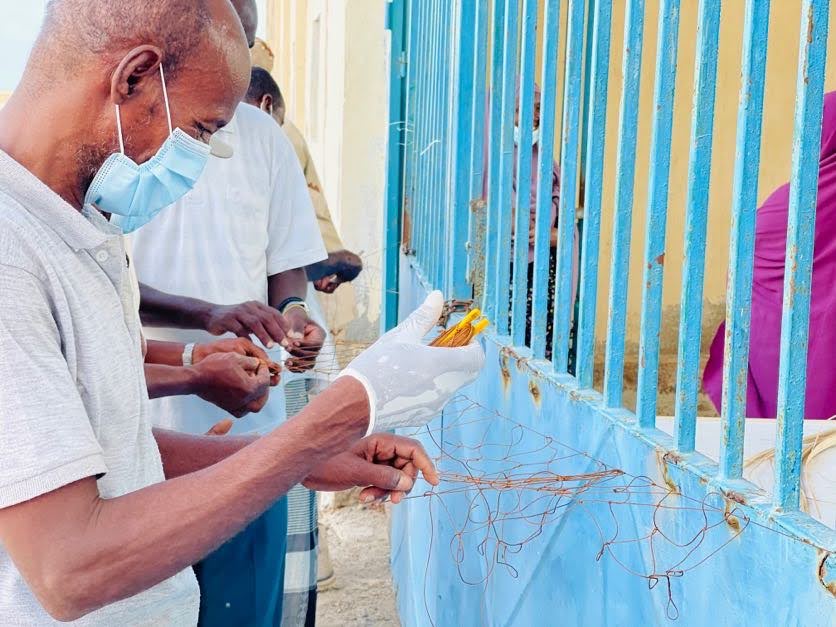


Fisher Field School graduates demonstrate their skills in net making, boat repair skills, and hygenic fish processing.
The pandemic changed the way we work, sometimes in permanent ways, but one year later, progress continues, building on the lessons we learned by overcoming the many challenges of 2020. The spread of COVID-19 demonstrated the interconnectivity of the world, both through the spread of the virus itself and through its global economic impacts. Export markets were cut off, dealing a major blow to coastal communities in the Somali region. However, with some creativity and willing partners, fish from the coast is reaching previously untapped inland markets.
This shift in the value chain highlighted a principle known by economists and ecologists alike: diversification is key. We saw this in the benefits to the community of market expansion, and also in the ways we diversified our methods of data collection and partnership engagement. It took time, planning, and approaching our work from different angles that no one predicted, but at the end of a difficult year, we are inspired and motivated by the profound resilience of our diverse stakeholder network.
Article Details
Published
Topic
Program
Content Type
Opinion & Insights